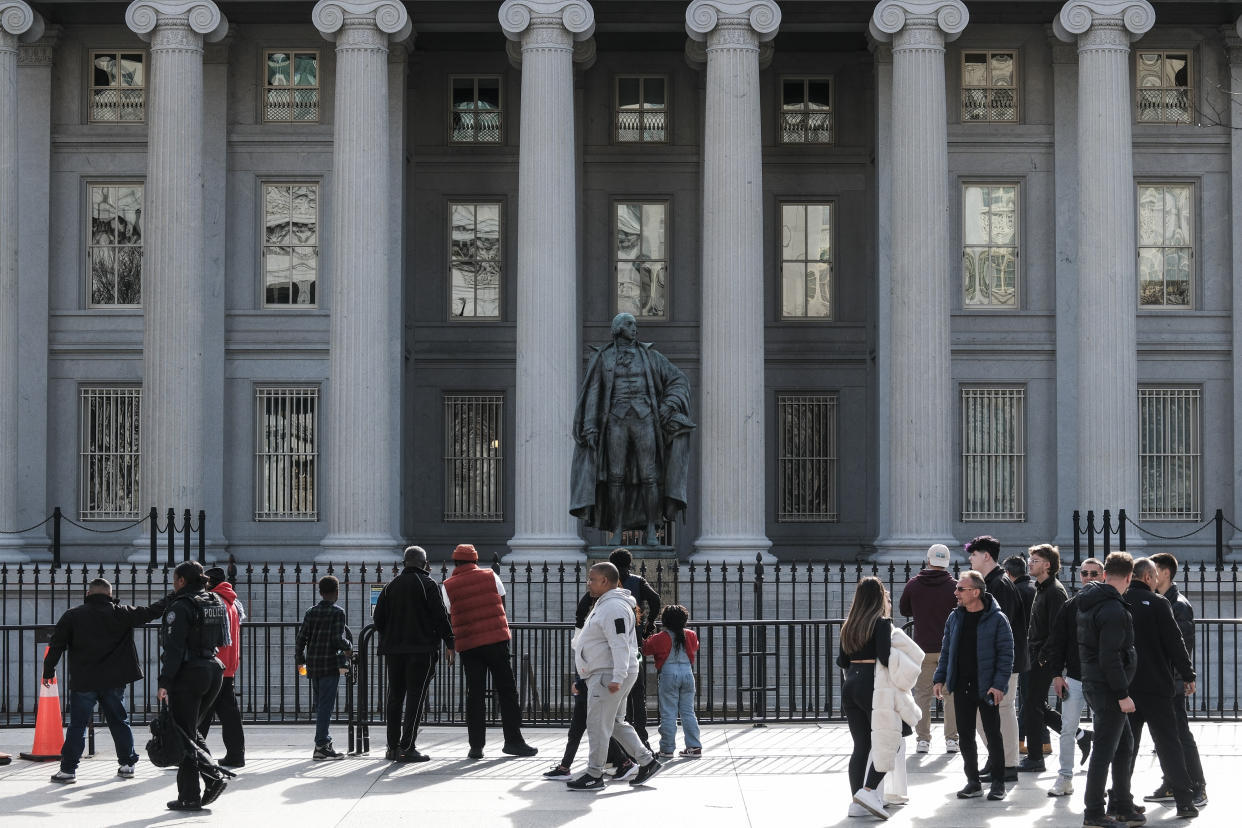Formerly Bankrupt Family Entertainment Chain Details Comeback; Trump Wants Federal Workers Back in the Office. It May Be a Tall Task, and other C-Virus related stories
Formerly bankrupt family entertainment chain details comeback:
During the height of the COVID-19 pandemic in 2020, many companies were forced to temporarily cease operations to help stop the spread of the deadly virus.
According to data from the Federal Reserve Board of Governors, more than 700,000 establishments closed in the second quarter of 2020, resulting in roughly 3 million job losses.
A few popular companies didn’t make it out of the pandemic unscathed. Many had to file for bankruptcy after losing a significant amount of business from the temporary closures. Brooks Brothers, GNC, J.C. Penney are a few of the many popular retail chains that filed for bankruptcy in 2020.
Chuck E. Cheese is another nostalgic chain that filed for bankruptcy that same year. The first-of-its-kind family entertainment chain opened in 1977 and became famous for its animatronic entertainment, pizza and arcade.
CEC Entertainment, which owns Chuck E. Cheese and Peter Piper Pizza, revealed in its Chapter 11 bankruptcy filing (filed in June 2020) that the company remained profitable until March 16, 2020, when it had to temporarily suspend the operations of its brands.
Despite cutting expenses, seeking rent concessions from landlords, and ramping up its pizza delivery business, the company was still millions of dollars in debt.
By December 2020, CEC Entertainment emerged from bankruptcy, and since then, Chuck E. Cheese has been on the road to recovery.
Chuck E. Cheese CEO details his plan to win back customers
Chuck E. Cheese rolled out a series of major changes to its brand, including removing its famous animatronics from its locations in 2024. In a new interview with CNBC, David McKillips, who joined Chuck E. Cheese as CEO in 2020, said that the decision created controversy.
“We pulled out the animatronics,” said McKillips in the interview with CNBC. “It was a hot debate for many legacy bands, but kids were consuming entertainment in such a different way, you know, growing up with screens and ever-changing bite-sized entertainment.” —>READ MORE HERE
Trump wants federal workers back in the office. It may be a tall task
President-elect Donald Trump warned federal employees last week that they must return to the office – or else “they’re going to be dismissed.”
The threat was the latest and loudest signal yet that Trump, his allies and Republicans in Congress are committed to ending a remote-work culture that became widespread for the civil service of 2.3 million during the coronavirus pandemic but that many conservatives now decry as an outdated taxpayer-funded perk that has hurt performance across the government.
A quick return to pre-pandemic – or even stricter – federal office policies is not likely to happen with the stroke of a presidential pen.
Trump’s expected return-to-office mandate faces furious resistance from federal employees, many of whom are covered by union agreements that guarantee work-from-home policies – including some contracts extended in recent weeks by outgoing Biden officials eager to blunt Trump’s impact on the workforce.
About 56 percent of the civil service is covered by collective bargaining contracts, many of which include provisions for telework, according to federal data and union officials. A record 10 percent of federal jobs now are designated as fully “remote,” with the official workplace an employee’s home or rented space far from an agency headquarters or regional office. The General Services Administration, which manages federal buildings, has also moved aggressively in recent years to shed costly excess office space as Biden officials kept pandemic policies in place.
“It’s in a lot of labor contracts,” Cathie McQuiston, deputy general counsel at the American Federation of Government Employees (AFGE), the largest union representing federal workers, said of the telework arrangements. “And at a lot of these agencies, the reality is, they don’t have the place to put people to force them back five days a week.”
Return-to-office mandates will be a huge expense for the incoming Trump administration, and will undercut its goal of slashing the federal budget, McQuiston predicted.
The looming battle with the country’s largest employer could be a test case for the resistance Trump will face in his ambitious plan to disrupt and remake the nonpartisan civil service. He has pledged to fire wide swaths of career employees and replace them with political loyalists, to close entire departments and move others out of Washington, and to dilute the power of federal employee unions.
Even as it races to extend work-from-home agreements before Trump assumes office Jan. 20, the AFGE last week told its own employees that as of January, workers at its D.C. headquarters will be allowed to telework for only two days in each two-week pay period, down from five days per pay period this year.
The new return-to-office mandate, ordered by national president Everett Kelley, is designed to ensure that the staff is fully prepared to tackle an onslaught of Trump policies targeting the federal workforce, spokesman Andrew Huddleston said. —>READ MORE HERE
Follow links below to relevant/related stories and resources:
Dr. Ngozi Ezike, face of Gov. JB Pritzker’s pandemic response, fined $150,000 for ethics violation
NC students’ scores fall post-COVID; Urban Institute study can help answer why | Opinion
USA TODAY: Coronavirus Updates
YAHOO NEWS: Coronavirus Live Updates
NEW YORK POST: Coronavirus The Latest







Comments are closed.